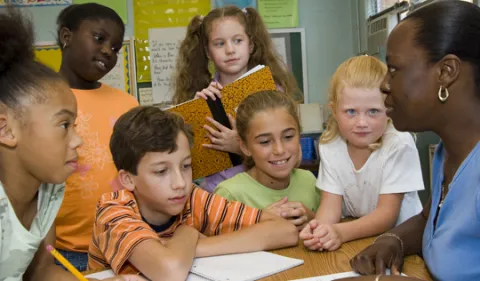Stanford GSB was the first North American business school to establish a center dedicated to engaging students in the pursuit of social and environmental change and made many contributions to the understanding of the evolving field of social innovation.
What Is Social Innovation?
“Social innovation is the process of developing and deploying effective solutions to challenging and often systemic social and environmental issues in support of social progress. Social innovation is not the prerogative or privilege of any organizational form or legal structure. Solutions often require the active collaboration of constituents across government, business, and the nonprofit world.”
— Sarah A. Soule, Neil Malhotra, Bernadette Clavier


